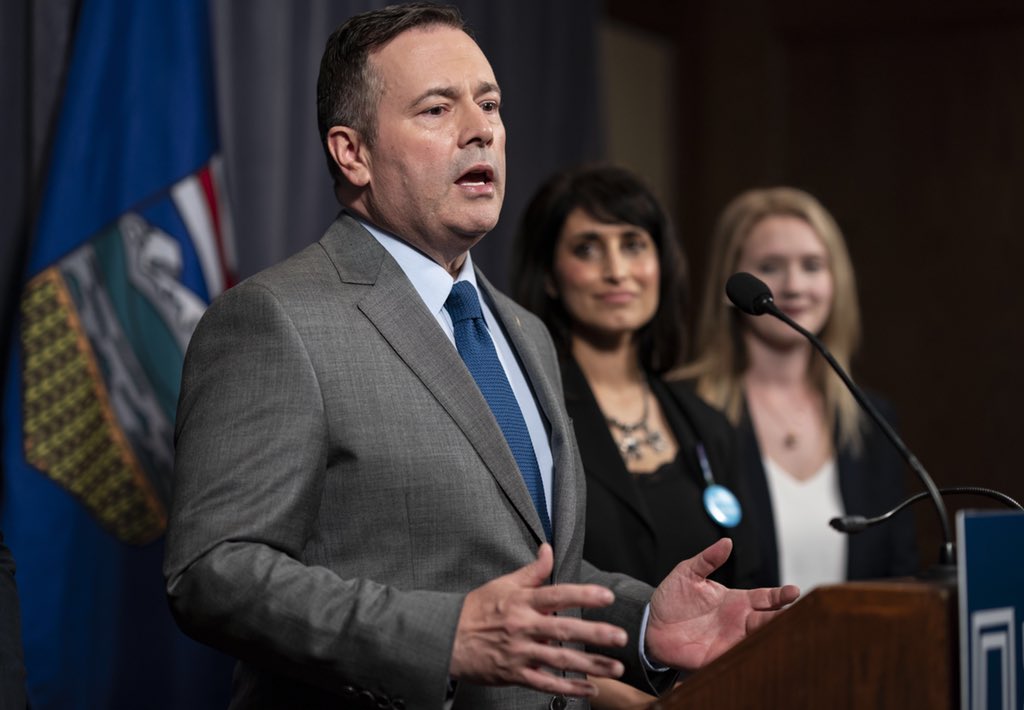
CHESTERMERE, Alta. — Alberta Opposition Leader Jason Kenney says a United Conservative Party government would develop an immigration strategy to attract more entrepreneurs and focus on rural communities.
Kenney says Premier Rachel Notley’s NDP government has failed to attract top talent from around the world, in part by running an immigrant nominee program that is tangled in delays and doesn’t focus on recruiting the best candidates.
“We’re trying to get the best bang for the buck that we possibly can,” Kenney said at a news conference Monday. “We have not been nearly as proactive or energetic as we should be in this program.”
In Edmonton, Alberta Labour Minister Christina Gray said Kenney is wrong and processing times are quite speedy compared with what the NDP inherited from the Progressive Conservatives in 2015.
“Instead of people potentially waiting as long as two years, (they) are often processed within two months,” said Gray.
Kenney said his plan would better leverage existing resources provided by the federal government.
Ottawa remains in overall charge of immigration, but allows Alberta to bring in 5,500 new workers to fill job shortages under a nominee program.
Each worker can bring in three direct family members, meaning the program can result in 22,000 new permanent residents a year.
Kenney, a former federal immigration minister, said if his party were to win the spring election, it would immediately begin consulting on a new immigration approach and implement it in 2020.
He said it would include ways to reduce red tape and bring in more entrepreneurs and other job creators.
The United Conservatives would also create two programs to help rural areas stay economically viable. One would set aside 500 certificates for entrepreneurs willing to live and work in smaller centres.
“The biggest challenge facing rural communities … is population stagnation and decline,” said Kenney. ”When the owner of the local hardware store in a small town decides to retire and no one buys it, that hardware store is not coming back. Those services are vital to the future of our rural communities.”
Kenney said about six per cent of immigrants to Canada settle in smaller centres.
A second program would be modelled after a similar successful venture in Manitoba, he said. Smaller communities that took time to recruit newcomers to fill jobs would have their needs prioritized, he said.
Kenney said the goal would be to bring in about 40,000 newcomers over the next four years under the two programs.
Kenney said the NDP has exhibited “no political leadership or focus.”
“Alberta has the least innovative provincial nominee program in Canada,” he said. “We’re one of the only provinces that does not proactively recruit top talent from around the world.
“We’re one of the only provinces that does not encourage entrepreneurs to come and create jobs through a provincial nominee immigration program.”
Gray said the province is always looking to improve the program, but there are concerns about focusing on job creators.
“I’ve heard from newcomers in Alberta that they’re concerned about people buying their way to the front of the line, that all of a sudden the super-wealthy will become the high-priority targets.”